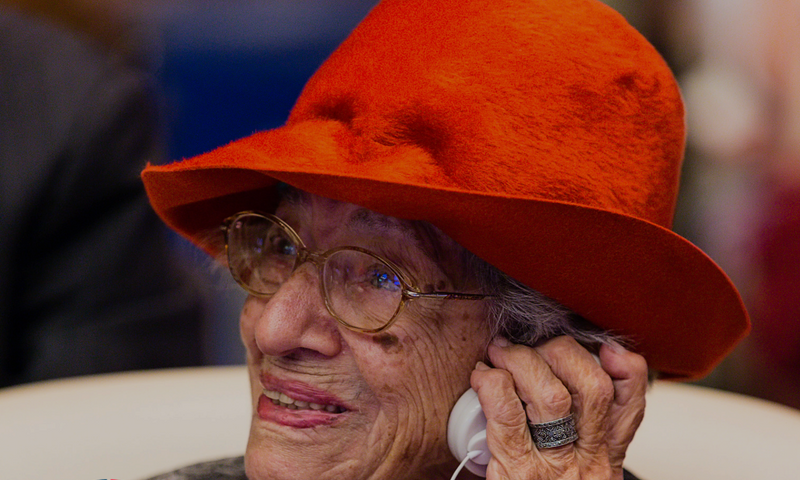
Virtually all countries are expected to see substantial growth in the number of older persons between 2015 and 2030, and that growth will be faster in developing regions. Because the numbers of older persons are growing, the amount of elder abuse can be expected to grow with it. While the taboo topic of elder abuse has started to gain visibility across the world, it remains one of the least investigated types of violence in national surveys, and one of the least addressed in national action plans.
Elder abuse is a global social issue which affects the health and human rights of millions of older persons around the world, and an issue which deserves the attention of the international community.
The United Nations General Assembly, in its resolution 66/127, designated June 15 as World Elder Abuse Awareness Day. It represents the one day in the year when the whole world voices its opposition to the abuse and suffering inflicted to some of our older generations.
A Violation of Older People's Human Rights
Elder abuse can be defined as "a single, or repeated act, or lack of appropriate action, occurring within any relationship where there is an expectation of trust which causes harm or distress to an older person". Elder abuse can take various forms such as physical, psychological or emotional, sexual and financial abuse. It can also be the result of intentional or unintentional neglect.
In many parts of the world elder abuse occurs with little recognition or response. Until recently, this serious social problem was hidden from the public view and considered mostly a private matter. Even today, elder abuse continues to be a taboo, mostly underestimated and ignored by societies across the world. Evidence is accumulating, however, to indicate that elder abuse is an important public health and societal problem.
Addressing Elder Abuse
Elder abuse is a problem that exists in both developing and developed countries yet is typically under-reported globally. Prevalence rates or estimates exist only in selected developed countries — ranging from 1% to 10%. Although the extent of elder mistreatment is unknown, its social and moral significance is obvious. As such, it demands a global multifaceted response, one which focuses on protecting the rights of older persons.
Approaches to define, detect and address elder abuse need to be placed within a cultural context and considered along side culturally specific risk factors. For example, in some traditional societies, older widows are subjected to forced marriages while in others, isolated older women are accused of witchcraft.
From a health and social perspectives, unless both primary health care and social service sectors are well equipped to identify and deal with the problem, elder abuse will continue to be underdiagnosed and overlooked.
Financial Abuse of Older People
Recent research findings draw specific attention to financial exploitation and material abuse of older persons as a common and serious problem. Based on available evidence, 5 to 10 per cent of older people globally may experience some kind of financial exploitation. However, such abuse often goes unreported, partly due to shame and embarrassment on the part of the victims or their inability to report it because of cognitive and other impairments, and most prevalence studies are based on self-reported surveys.
Financial exploitation takes many forms. In developed countries, the abuse often encompasses theft, forgery, misuse of property and power of attorney, as well as denying access to funds. The overwhelming majority of financial exploitation in less developed countries includes accusations of witchcraft that are used to justify property grabbing, ejection from homes of and denial of family inheritance to widows. Risk factors for falling victim to financial exploitation range from social isolation and cognitive impairment to emotional or physical dependence on the perpetrator, financial dependence of the abuser on the older person, certain living arrangements, poverty, widowhood and lack of support networks, in addition to ageism and other types of prejudice, discriminatory inheritance systems, as well as weak police and criminal justice systems.
“Understand and End Financial Abuse of Older People: A Human Rights Issue”
The 2017 theme underscores the importance of preventing financial exploitation in the context of elder abuse to the enjoyment of older persons’ human rights. In line with the 2030 Sustainable Development Agenda and the Madrid International Plan of Action on Ageing, older people have the right to a life of dignity in old age, free of all forms of abuse, including financial and material exploitation, which could lead to poverty, hunger, homelessness, compromised health and well-being, and even premature mortality.
Elder Abuse Awareness Community Guide Tool Kit
For more information, please visit: http://bit.ly/2017weaad | www.un.org/en/events/elderabuse/
#ElderAbuse #WEAAD #SDGs #GlobalGoals
Source: UNDESA DSPD, UN DPI and International Network for the Prevention of Elder Abuse (INPEA)
 Welcome to the United Nations
Welcome to the United Nations